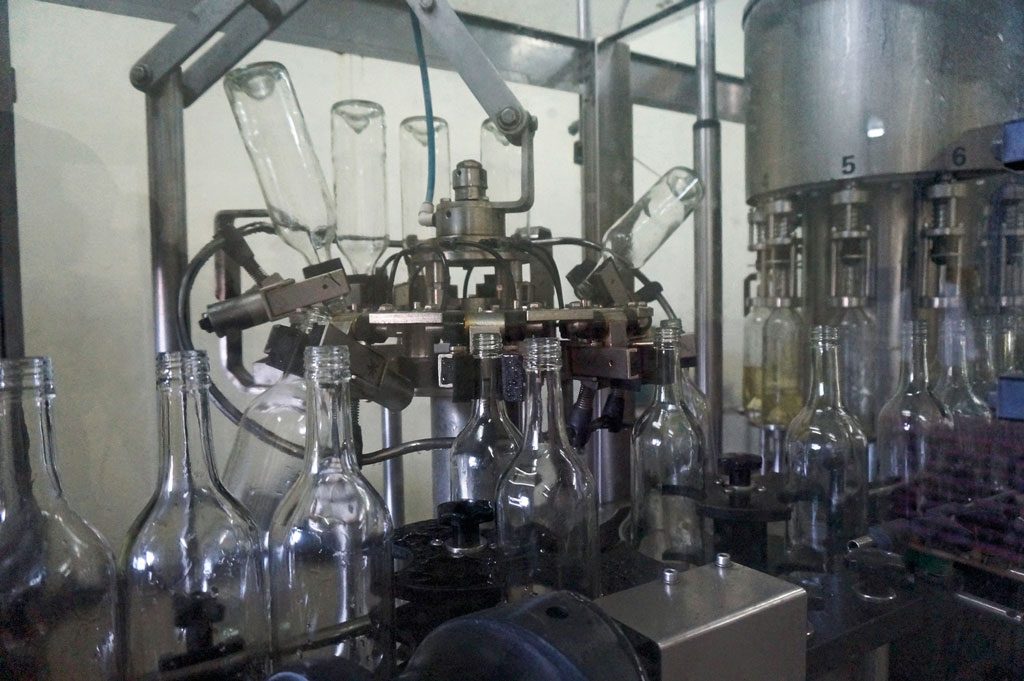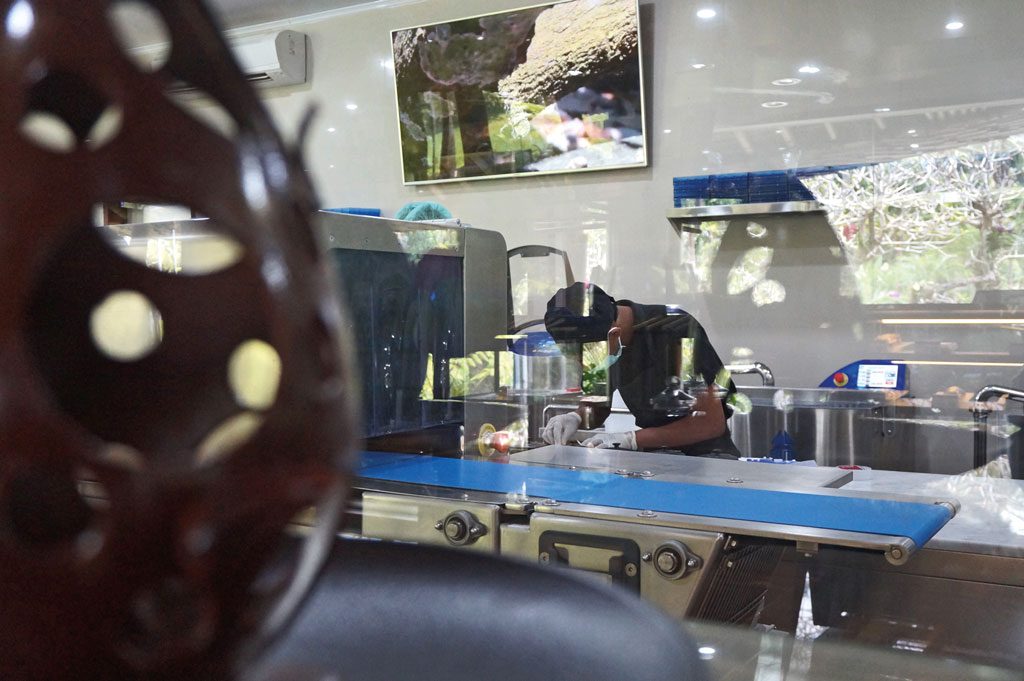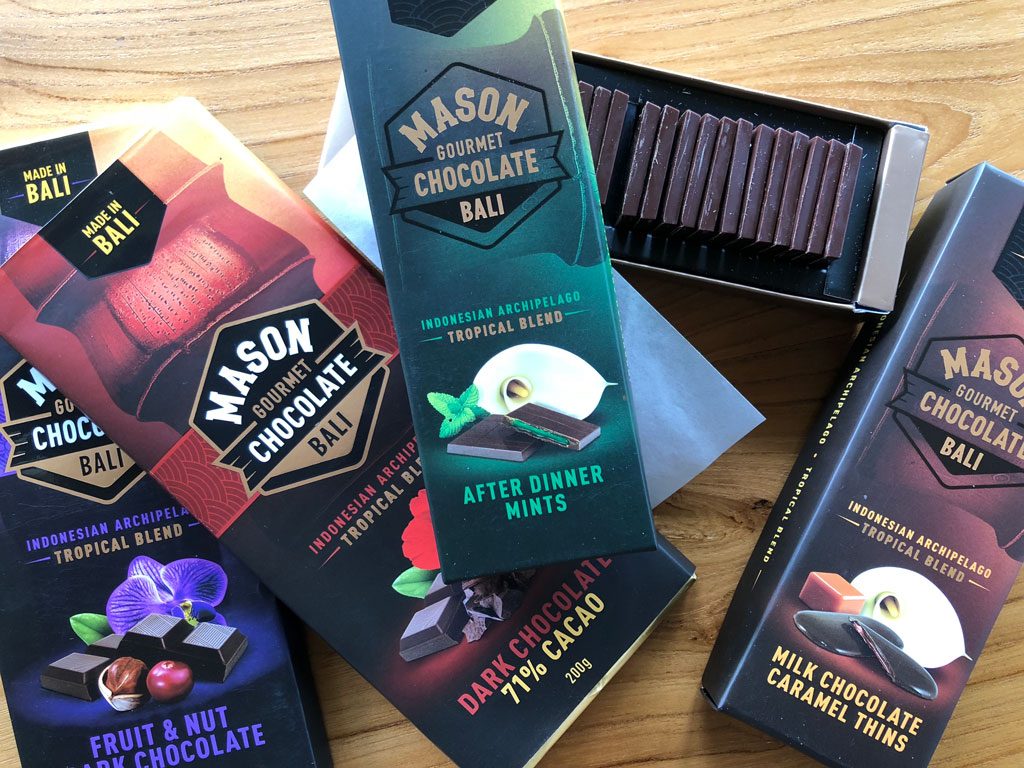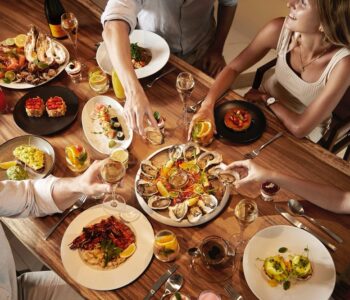Before we take you on a culinary tour through the eat streets of Bali, we’d like to introduce to you two Bali brands that aim to bring the local Indonesian products and produce to the international stage of the food and beverage industry. The two brands take pride in what they do and make, and we’re here to celebrate with them.
While Indonesia is not traditionally a country of boozers, it is a producer of several alcoholic beverage brands – some of which have gained international recognition. And one of them is Hatten Wines, a Balinese wine company that has scooped up international awards from Asia and even Europe.

Hatten Wines is a familiar name in Indonesia’s food and beverage industry. The brand has been making wines here on the island since 1994, breaking all rules of traditional viticulture and winemaking by braving the climate, the elements, and fierce critics. Years of adjustments, trials, testing, and reinventing itself – more than 20 years now – have forged a solid winemaking company with incredible pride in its staff, products, and owners.

Growing grapes in Bali was started at the beginning of the 20th Century but it is only a few decades ago, after multiple trials and errors, survival to parasites and other vine diseases, that the grapes were grown with satisfaction on a commercial scale and found in markets all over the archipelago.
Hatten Wines grows its grapes in its vineyards in Singaraja, and harvests over 34.5 hectares worth of succulent grapes. With over 14 years of development and improvement, the vineyards have already reached the maturity of vines of other new world wines. The northeast of Bali has long been a grape growing area and Hatten Wines has found this region suitable, owing to the abundance of sunshine, clear mountain water and rich volcanic soil found in the area. Visitors to the area can see grapes from the main road towards the beach, starting from the tourist town of Lovina until the beach resort of Pemuteran.

The vines in North Bali’s vineyards are trained into an overhead trellis called Pergola, where the posts consist of small trees, which are regularly pruned. Besides keeping the workers cool, the pergola system reduces the risk of diseases and sunburn on the grapes, all contributing to a better fruit quality. The daily task of seeing the grapes protected from the elements is a full time operation and workers often live in houses built amongst the pergolas to take constant care in case of rain. The crops have a surprisingly high quality and the grapes brought to the winery are certainly ranked as the best of the best.

It’s from this Singaraja vineyard that Hatten Wines started producing its first wine varietal in 1994, the Hatten Wine Rosé. in 2001, after celebrating its 100th vintage of the Rosé, Hatten Wines slowly introduced a white wine and a white brut méthodechampenoise sparkling, a light red wine, and a fortified wine inspired by the Pineau des Charentes method – all using locally grown grapes.
The harvests will then be transported to the Hatten Wines winery in Sanur, a modern state of the art facility with stainless steel vessels, refrigeration, installation, a horizontal press, 56 large wine tanks, fermenters, a bottling room, filters of various types and an up to date laboratory facility. It has a capacity of bottling 5,000 bottles per day. The hand harvested fruits are hand cleane, and normally received early in the day and quickly processed through crushing and pressing equipment or processed with skins in fermenters to make red wine.

Today, Hatten Wines products are found on most of Bali and Indonesia’s tables. Over the past few years the winery has collected awards from prestigious competitions and accolades from wine experts, writers, also featured in articles and books worldwide. The company’s founder, IB Rai Budarsa was saluted as a wine pioneer in Asia for producing the Hatten Wines and Two Islands ranges by the panel of judges of the Wine for Asia Awards in 2011. During its journey, the proudly Balinese Hatten Wines has won several awards at competitions in Europe and Asia, solidifying its place as a pioneer in the regional wine industry.
If you’re planning to visit North Bali, then you should include a stop at the Welcome Centre & Observation Deck of Hatten Wines in your itinerary. Here you can trek along the vineyards and observe the farming of Alphonse Lavallee grapes that are grown locally in most Balinese vineyards, producing very tasty wine. The tour will include a lesson in wine making, grape picking, and a visit at Hatten Wines’ laboratory, before concluding with the activity you have been waiting for: Wine tasting!
Away from the Hatten Wines vineyards in North Bali and into the jungle of Taro village in North Ubud, artisan gourmet chocolates are passionately crafted at the workshop of Mason Gourmet Chocolate Factory. Owned by Mason Adventures, a company renowned for its white water rafting and elephant park, Mason Gourmet Chocolate is now a producer of dark chocolates of the finest quality despite its recent establishment.
Sourcing its cacao beans from across the archipelago such as Aceh, West Sumatra, Jember, Banyuwangi, Berau, Seko, Masamba, and Bali’s regencies of Tabanan and Jembrana. But rather than just placing the orders, the team at Mason Gourmet Chocolate travel to these areas to meet the farmers in person, and to the ensure the quality of the cacao beans is of the highest standard. The onsite visit is also aimed at educating the cacao farmers about the importance of quality over quantity for more valuable sales.

“The farmers were surprised when we offered to buy their cacao in beans, apparently, it’s a much higher price, as long as they can keep up to the standards we set. They’re used to selling the beans in bulk, and for a little amount of money. This is why the founder of Mason Adventures, Nigel Mason, sent me to attend the World’s Cacao Conference in Jakarta because he felt the need that, in order to produce high quality chocolates, we also have to know about the whole cacao plantation and farming. The conference was attended by thousands of people, and among them were farmers and NGOs working to improve the lives of cacao farmers. There, I got the chance to learn so much about the cacao industry directly from the farmers and representatives of the NGOs,” said Chef Tiwi, currently at the helm of Mason Gourmet Chocolate and other Mason Adventures’ dining outlets.

After finally securing the top quality cacao beans directly from the farmers, Mason then imported the finest chocolate machinery, Selmi; and currently the brand is now the only chocolate maker in the whole Indonesian archipelago that owns the most complete range of Selmi chocolate machines. As the result, when top quality Indonesian cacao beans meet the finest machine and chocolate making philosophy from the west, is high quality chocolates that have gained popularity even amongst the people from chocolate producing countries in Europe.
But what sets Mason Gourmet Chocolate apart from other chocolate makers, especially the mass producers, is that the machines are only doing 60% of the job. From the arrival of the cacao beans at Mason Gourmet Chocolate’s base in Taro, human involvement is required to make sure that the beans are up to par in terms of bean count standard. The thousands, if not more, of cacao beans are hand picked, before being processed. “Once the machines are running, we still have to closely observe the whole process; so we touch and see with our very own eyes to see if there’s irregularity with the texture everything else. This is why the chocolates we produce are artisan gourmet chocolates,” Chef Tiwi further explained. As the result, different with other dark chocolates, the ones produced by Mason are creamy without any additional dairy products.

“Indonesia is the third largest cacao exporter in the world. Unfortunately, this is just about quantity, not quality. This is why Nigel insists on me going directly to the plantations to see the farmers, and educate them about the importance of quality that can result in a high selling point. Hopefully, as Nigel wished, we can introduce top quality chocolates made from the Indonesian cacao beans, and also produced here in the country,” Chef Tiwi concluded.
Jalan By Pass Ngurah Rai No. 393, Sanur
+62 361 472 1377
www.hattenwines.com
Koko Bambu Restaurant
Jalan Raya Taro, Banjar Tatag, Ubud
+62 361 721 480
www.masongourmet.com










